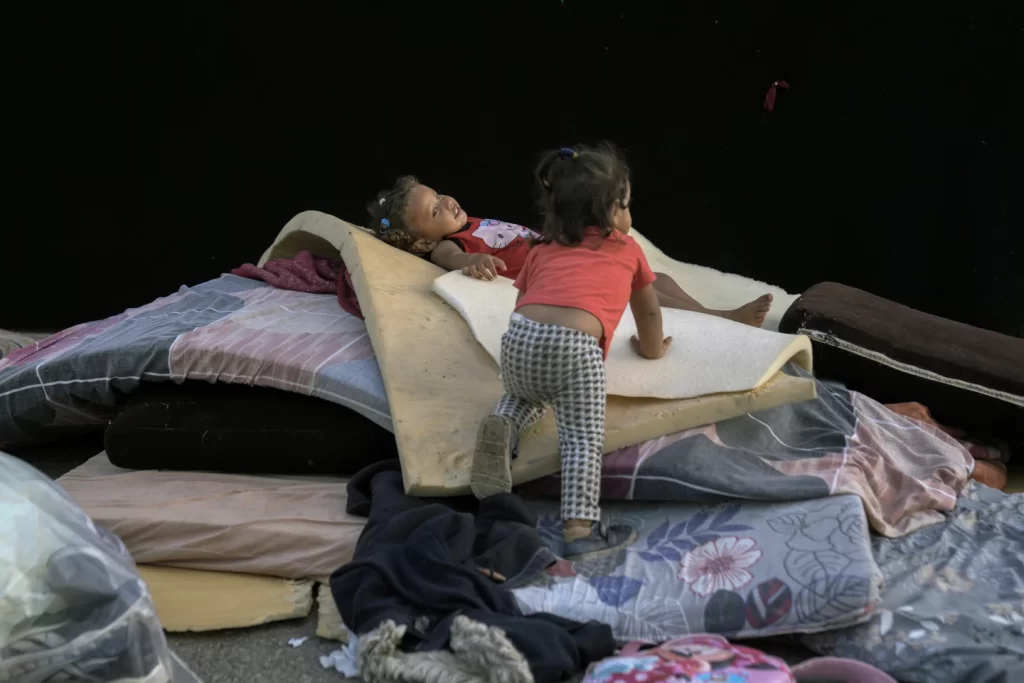More than 400,000 children in Lebanon have been displaced in the past three weeks due to escalating conflict, a senior UNICEF official reported Monday, warning of a potential “lost generation” in the crisis-stricken country.

Ted Chaiban, UNICEF’s deputy executive director for humanitarian actions, stated, “What struck me is that this war is three weeks old and so many children have been affected.” He added, “As we sit here today, 1.2 million children are deprived of education.”
The displacement comes as Israel intensifies its campaign against the Lebanon-based Hezbollah militant group, including a ground invasion, following a year of exchanges during its war with Hamas in Gaza. The fighting has driven 1.2 million people from their homes in Lebanon.

Chaiban highlighted the severe impact on education, with public schools either inaccessible, damaged, or being used as shelters. He expressed concern that “hundreds of thousands of Lebanese, Syrian, Palestinian children are at risk of losing their learning.”
The conflict has resulted in over 2,300 deaths in Lebanon from Israeli strikes, with more than 100 children killed and over 800 wounded in the last three weeks alone, according to Chaiban.
The humanitarian situation is dire, with displaced families crammed into overcrowded shelters. “Three or four families can live in a classroom separated by a plastic sheet, and where 1,000 people can share 12 toilets,” Chaiban described.

The escalation has also severely impacted healthcare, with over 100 primary health care facilities out of service and 12 hospitals either non-functional or partially operational. Additionally, 26 water stations serving nearly 350,000 people have been damaged.
Chaiban called for the protection of civilian infrastructure and appealed for a ceasefire in Lebanon and Gaza. He emphasized the need for political will to resolve the conflict through non-military means.

The UNICEF official also noted that the emergency response appeal for $108 million in Lebanon has only been 8% funded three weeks into the escalation, highlighting the urgent need for international support.
As the crisis deepens, concerns grow about the long-term impact on Lebanon’s children and the country’s future stability.
Associated Press



